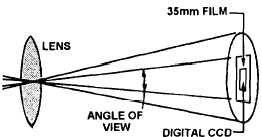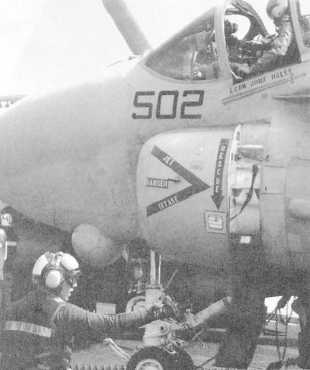Figure 4-30.–Comparing the angle of view of a 35mm camera
and the Kodak DCS Digital camera.
the chrominance information. This camera provides a
720,000 pixel image.
The images can be stored on the floppy disk either
as a FRAME or a FIELD. When frame is selected, each
picture is recorded on two tracks and up to 25 images
can be recorded on each disk. When field is selected,
each picture is recorded on only one track, allowing up
to 50 images to be recorded. When you record your
pictures in the field mode, images are less detailed as
compared to images recorded on two tracks (frame).
Overtaking the still-video camera is the digital
camera. The Eastman Kodak Company is leading the
way in digital-imaging technology by introducing the
Digital Camera System (DCS). Resolution with the
Kodak DCS 200 Digital camera is 1.54 million pixels,
PHAN(AC) April Hatton
302.271
Figure 4-31.–Image captured and transmitted using the
Kodak DCS Digital camera.
providing four times the resolution of a still-video
camera. Kodak’s fully digital systems use a Nikon body
and optics to capture the image. The image is then
transferred to a highly sensitive CCD that converts the
image directly into digital information. The CCD in the
Kodak DCS camera system only uses a small portion of
the angle of view compared to conventional cameras;
for example, a 28mm lens on the Kodak DCS Digital
Camera is equivalent to an 80mm lens on a 35mm
camera (fig. 4-30).
The exposure index (EI) of the DCS camera equates
to 50 to 400 IS0 for color images and 100 to 800 IS0
for black-and-white images. The digital images stored
on the DCS camera can easily be downloaded to a
computer, so it can be manipulated and printed or can
be transmitted around the world without loss in quality.
The image in figure 4-31 was transmitted directly from
the USS Ranger CV-61 via satellite to the Navy News
Photo Division in the Pentagon.
4-31




